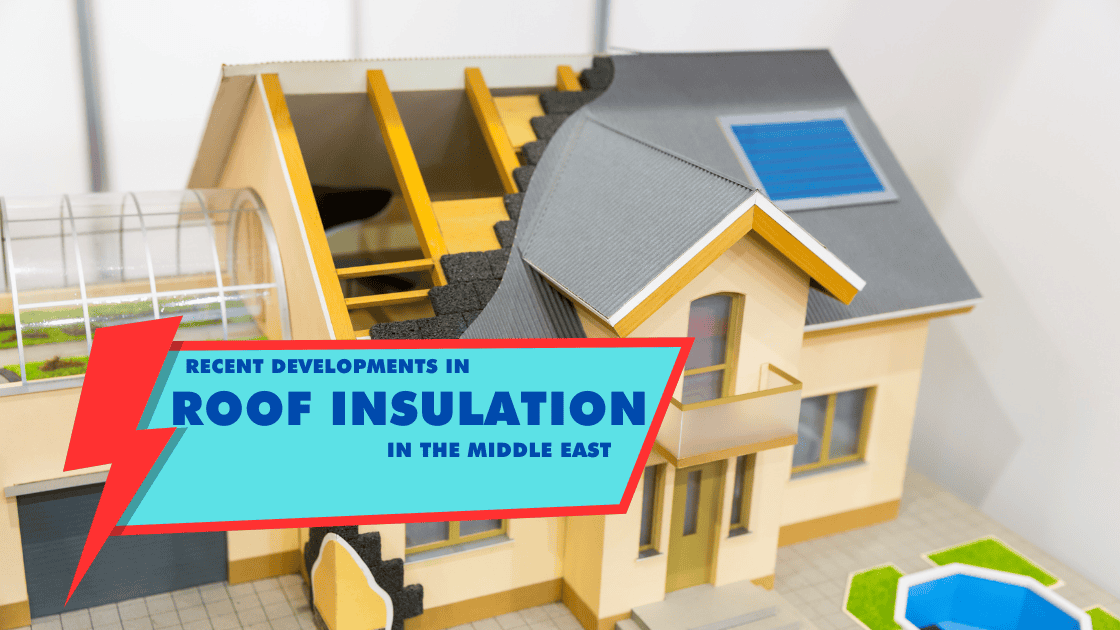
Account

In the Middle East, where temperatures can soar to extreme highs, thermal insulation plays a critical role in maintaining indoor comfort and reducing energy consumption. Recent advancements in roof thermal insulation are transforming the construction industry, offering more efficient, sustainable, and cost-effective solutions. Here’s a look at the key developments shaping this vital sector:
Innovative materials like polyurethane foam, reflective membranes, and phase-change materials (PCMs) are gaining popularity. These materials not only improve thermal performance but also reduce roof weight and increase durability. Polyisocyanurate (PIR) boards and expanded polystyrene (EPS) are also extensively used for their high R-value and cost efficiency.
Cool roofs are becoming a standard feature in modern construction across the region. These roofs are designed with reflective materials that minimize heat absorption, keeping buildings cooler. Reflective coatings and membranes have been widely adopted in urban areas to combat the heat island effect, a growing concern in cities like Dubai and Riyadh.
The push for green building practices has led to increased use of eco-friendly insulation materials. Products made from recycled content or renewable resources, such as cellulose or wool-based insulation, are gaining traction. These materials align with the region’s sustainability goals, particularly in projects adhering to LEED or Estidama standards.
Prefabricated insulation panels and modular systems are streamlining construction processes. These systems offer precision, reduce installation time, and minimize waste, making them a preferred choice for large-scale projects in the Middle East.
Fire safety is a significant concern in thermal insulation, especially for roof systems. Recent advancements include fire-resistant coatings and materials that meet stringent safety standards without compromising on insulation performance.
Combining thermal insulation with solar panel installations has become a common practice. Proper insulation under solar panels enhances energy efficiency by reducing heat transfer, maximizing the panels’ performance, and ensuring longer-lasting roof systems.
Governments across the Middle East are enforcing stricter building codes and energy efficiency standards. For instance, Dubai Municipality mandates specific insulation criteria for all new constructions. These regulations are driving innovation and the adoption of high-performance insulation materials.
The introduction of smart insulation systems, which can adapt to changing temperatures, is a game-changer. These systems utilize advanced sensors and materials that optimize thermal performance based on real-time environmental conditions.
The Middle East is at the forefront of adopting cutting-edge technologies and sustainable practices in roof thermal insulation. These advancements not only address the region’s unique climatic challenges but also contribute to energy conservation and environmental protection. As demand for efficient and eco-friendly solutions grows, the construction industry is set to witness even more innovative developments in the years ahead.
Your one stop solution for all your construction needs.
Tailored made solutions for your requirements
Prompt, Precise and Guaranteed timely delivery, every time.
Personalized assistance and expert guidance every step.
ibeam: Your Trusted Partner for Quality Building Materials
Streamline your procurement process with ibeam’s extensive product range, reliable supplier network, and seamless online experience. We deliver unbeatable value, top-tier quality, and on-time delivery—empowering contractors, builders, and traders across the Middle East and African countries.
+971 55 778 3469
Website & Digital Marketing: KVN Promos

